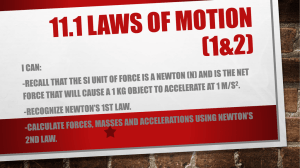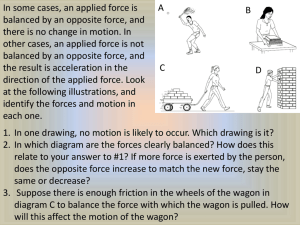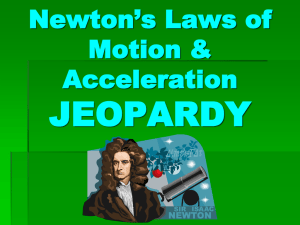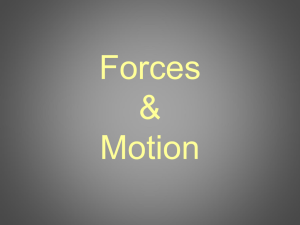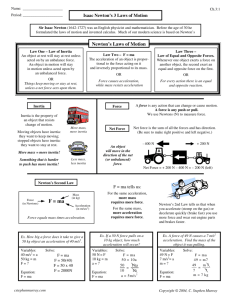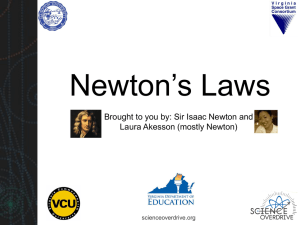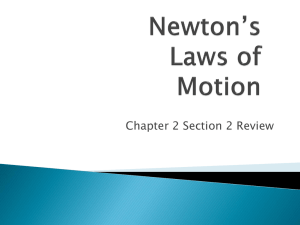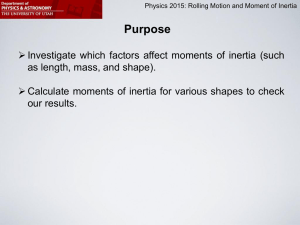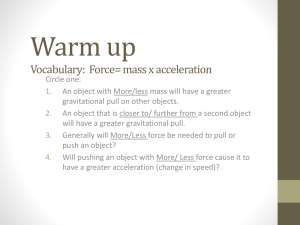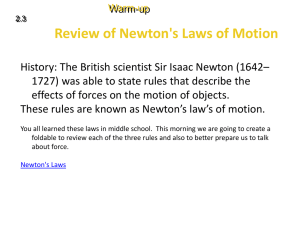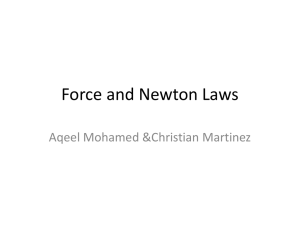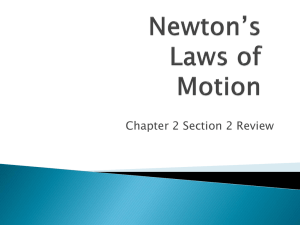Laws of Motion
advertisement
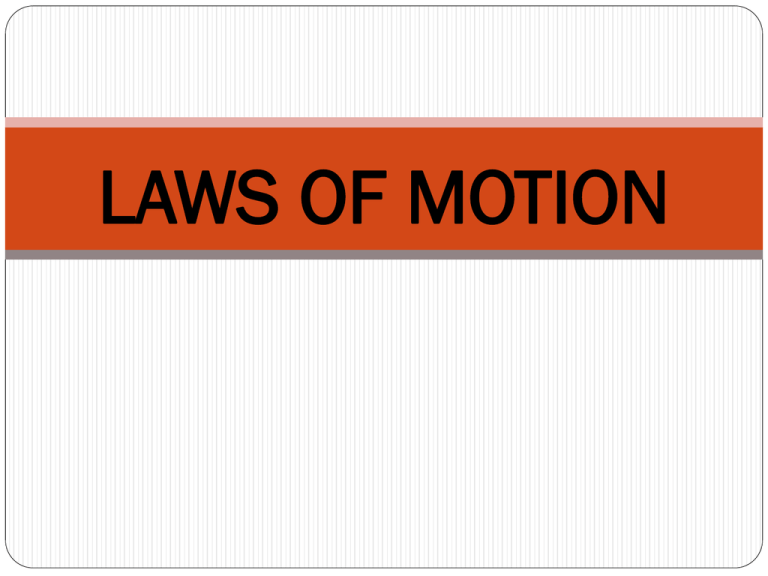
LAWS OF MOTION Chapter 11 Newton’s First Law an object at rest remains at rest and an object in motion maintains its velocity (stays in motion) unless it experiences an unbalanced force (outside force). Aka Law of Inertia INERTIA tendency of an object to resist being moved or if object is moving, resist a change in speed or direction until an outside force acts on object. All objects resist changes in motion Less mass, less inertia More mass, more inertia Chapter 11 INERTIA EXAMPLE Seat belts and car seats provide protection. • Because of inertia, you slide toward the side of a car when the driver makes a sharp turn. • When the car you are riding in comes to a stop, your seat belt and the friction between you and the seat stop your forward motion. WHY WEAR A SEATBELT? SEATBELT IN THE BACKSEAT? Newton’s Second Law unbalanced force acting on an object equals object’s mass times its acceleration. Force = mass acceleration SI Unit: newtons (N) 1 N = 1 kg 1 m/s2 F m a Zookeepers lift a stretcher that holds a sedated lion. The total mass of the lion and stretcher is 175 kg, and the lion’s upward acceleration is 0.657 m/s2. What is the unbalanced force necessary to produce this acceleration of the lion and the stretcher? GIVEN: WORK: F=? m= 175 kg a = 0.657 m/s2 F = ma F ma F = (175 kg) (0.657 m/s2) F = 115 N What is the net force necessary for a 1.6 x 103 kg automobile to accelerate forward at 2.0 m/s2? GIVEN: WORK: F=? m= 1.6 x 103 kg a = 2.0 m/s2 F = ma F ma F = (1.6 x 103 kg) (2.0 m/s2) F = 3.2 x 103 N A baseball accelerates downward at 9.8 m/s2. If the gravitational force is the only force acting on the baseball and is 1.4 N, what is the baseball’s mass? GIVEN: WORK: F = 1.4 N m= ? a = 9.8 m/s2 m = F/a F ma m = 1.4 N / 9.8 m/s2 m = 0.14 kg A sailboat and its crew have a combined mass of 655 kg. Ignoring frictional forces, if the sailboat experiences a net force of 895 N pushing it forward, what is the sailboat’s acceleration? GIVEN: WORK: F = 895 N m= 655 kg a=? a = F/m F ma a = 895 N / 655 kg a = 1.37 m/s2
